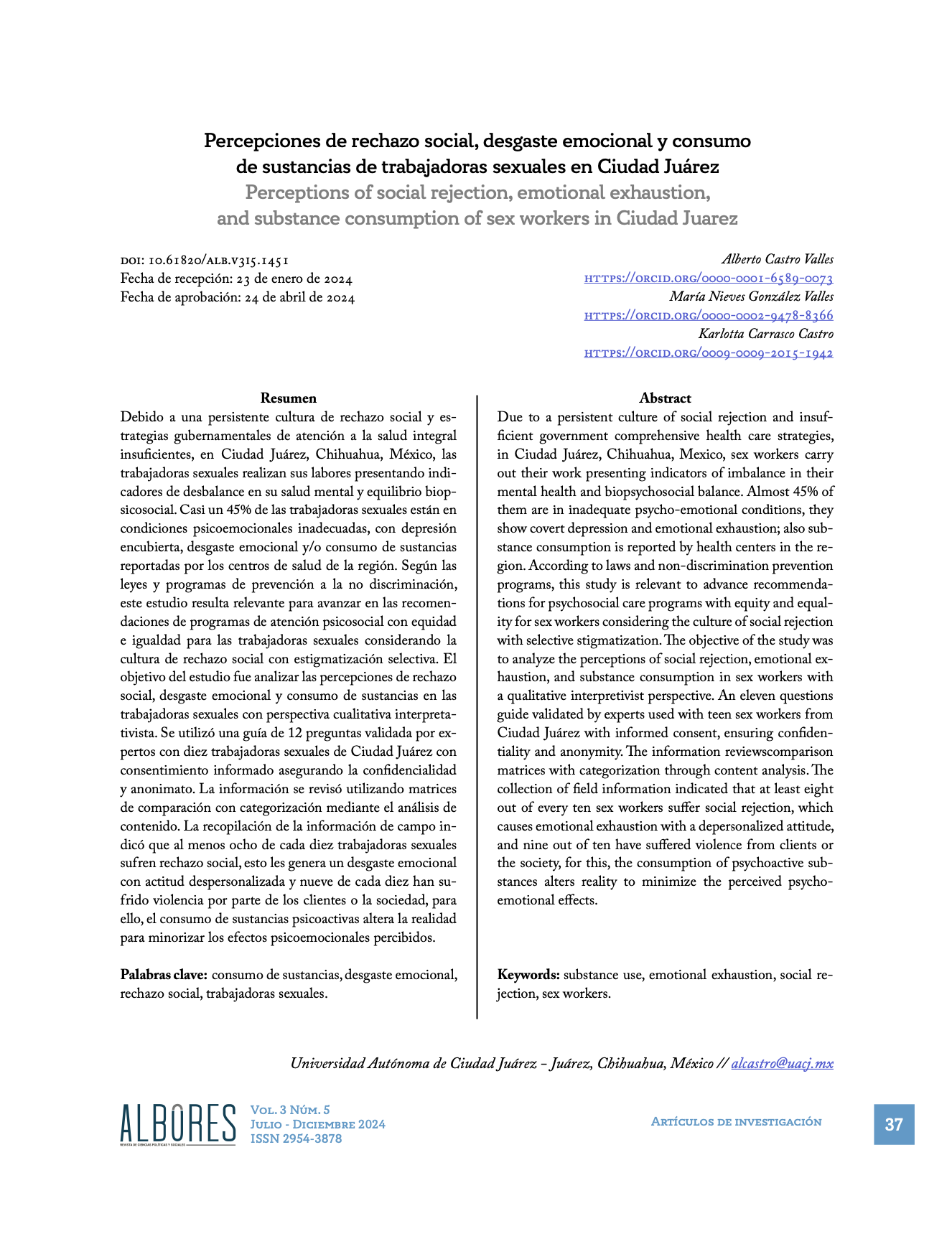Abstract
In Ciudad Juárez Mexico, sex workers present indicators of imbalance in their mental health in the face of a culture of social rejection and insufficient government comprehensive health care strategies. The objective of the study was to analyze the influence of social rejection on emotional exhaustion and substance consumption. With cross-sectional exploratory qualitative methodology, a guide of 12 questions validated by experts with 10 sex workers was used. The findings indicated that the majority suffer from social rejection that generates emotional exhaustion with a depersonalized attitude, since substance consumption alters reality to minimize the psychoemotional effects.

This work is licensed under a Creative Commons Attribution-NonCommercial-ShareAlike 4.0 International License.
Copyright (c) 2024 Albores


